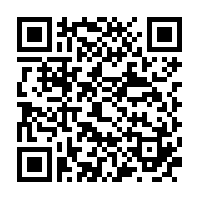Seeking Knowledge is a Duty - Farizat
20 May 2017
بسم الله الرحمن الرحيم
طَلَبُ العِلْمِ فَرِيضَةٌ عَلى كُلِّ مُسْلِمٍ وَمُسْلِمَةٍ
'It is the duty of every Muslim man and every Muslim woman to seek knowledge.'
(Rasulullah SA)
This article was written by Ra'sul Hududil Mayameen Janab Syedi Aziz Bhaisaheb Qutbuddin in 2017.
When you think of the word “farizat”, the religious obligation and duty to perform the five farizat namaaz, the farizat roza of Shehrullah, the farizat of zakaat and Hajj come to mind. Given that, it is incredible that Rasulullah SA used the word farizat to describe every Muslim’s duty to seek knowledge.
By stating – 1400 years ago – that it is every Muslim man (Muslim) and every Muslim woman’s (Muslima) duty to seek knowledge, Rasulullah SA made it clear that this obligation was equally incumbent upon men and women.
The Qur’an Majeed poses a rhetorical question “is there a comparison between those who have knowledge (‘ilm) and those who do not?” (Surat al-Zumar: 9). We see the difference education makes in our daily lives and our livelihoods. For this reason, secular education is vital and it has been, and is, encouraged by our Hudaat Kiraam through their statements, personal examples and their actions.
As secular education enables us to improve our lives in this world, the knowledge of Aakheratand the ‘ilm of Aal-e-Mohammed raises the ranks of those who seek it in the Hereafter (Surat al-Mujadala: 11).
Just as secular education starts at home with parents and then children progress through kindergarten, primary, secondary schooling and then university, tarbiyat in the knowledge of Aakherat and the ‘ilm of Aal-e-Mohammed begins at home with parents and then children move through madrasa and the various levels of zahir, baatin and haqiqat.
We all know that there is no “easy” or “quick” way to achieve a meaningful secular education as learning and studies require commitment. It is only logical that motivation, conviction and time are also necessary for the attainment of knowledge of Aal-e-Mohammed.
As we are conscious of finding the right school, the right college and the right mentor in secular education, finding the right source and mentor for the ‘ilm of Aal-e-Mohammed is crucial. When Rasulullah said “seek knowledge even as far away as China” he was stressing the importance of making a conscious effort for ‘ilm and seeking the right source for it.
Today there is no excuse for not seeking knowledge, especially the ‘ilm Aal-e-Mohammed. In the era of the 51st and 52nd Dais, madrasas were established in cities and towns where Mumineen resided. Sabaqs were conducted in many of the towns. Many young Mumineen and Muminaat came to Jamea Saifiyyah to seek ‘ilm. After the wafaat of Syedna Burhanuddin RA, people of fitnat and mischief usurped control of the Dawat infrastructure. Yet, Syedna Burhanuddin’s successor, the 53rd Dai al-Mutlaq, Syedna Khuzaima Qutbuddin RA ensured that Mumineen had access to primary and higher levels of knowledge, both in person and through the use of technology (i.e. online). Madrasa and sabaqs continued in person where possible. For distance learning, Fatemimadrasa.com was launched and madrasa classes were conducted online. Many sabaqs, both general and restricted higher level sabaqs, were available for Mumineen no matter where they resided. Syedna Qutbuddin’s successor, Syedna Taher Fakhruddin TUS continues this path. The updated Fatemimadrasa.com website is an example of this continuation.
Seeking the knowledge of Aal-e-Mohammed is a farizat. Today, there is no excuse not to fulfill that obligation.
May Allah Ta’ala grant us tawfeeq to seek knowledge, especially the knowledge of Aal-e-Mohammed, from the right source. May He give us the strength to expend all efforts to enlighten our minds and our souls.




